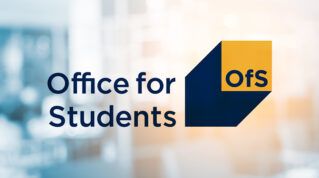Sir David Behan has been appointed interim chair of a “refocused” Office for Students (OfS), following publication of his review that found the regulator’s focus and priorities had become “diluted”.
His appointment comes shortly after the resignation of previous chair, Lord James Wharton, who faced criticism for a perceived lack of independence from the government.
Labour has also halted controversial new powers over freedom of speech in HE that the OfS was due to begin enforcing next week.
Behan’s review, launched in December 2023, has said the “overstretched” OfS needs to evolve as the higher education sector faces “unprecedented” financial challenges.
Four focused priorities
The arm’s length regulator’s four priorities for higher and further education sector should be quality, financial stability, student interest and management of public money, the review recommended.
Behan’s report said: “It can do so by focusing on a more transparent, dynamic approach, built on mature, trusting relationships with the sector.”
Education secretary Bridget Phillipson accepted the review’s “core analysis”, adding that the Labour government recognises the need for “strong regulation”.
Behan will work with the current executive team at the OfS to “implement” his recommendations until a permanent chair is appointed “next year”, Phillipson said.
Behan said it was a “privilege” to lead the review and that he looked forward to “delivering the changes the review recommends”.
The new OfS chair is a former social worker with extensive experience as a regulator, having worked as chief inspector for the former Commission for Social Care Inspection and later held the chief executive post at the Care Quality Commission (CQC) from 2012 to 2018.
His salary, set by the Department for Education, will be £29,500 a year, with one day each week devoted to the role. Lord Wharton’s salary was £59,000 for two days a week.
Free speech powers on hold
The education secretary also revealed the government has put the Conservatives’ freedom of speech legislation on hold, pending a review into whether it should be repealed.
Phillipson said: “For too long, universities have been a political battlefield and treated with contempt, rather than as a public good, distracting people from the core issues they face.
“The steps announced today will sharpen the focus of the Office for Students, with greater emphasis on ensuring the financial stability of the sector.
“We are absolutely committed to freedom of speech and academic freedom, but the Free Speech Act introduced last year is not fit for purpose and risked imposing serious burdens on our world class universities.
“This legislation could expose students to harm and appalling hate speech on campuses. That is why I have quickly ordered this legislation to be stopped so that we can take a view on next steps and protect everyone’s best interests, working closely with a refocused Office for Students.”
Doing the government’s bidding?
Behan’s review was launched in December 2023 following a House of Lords committee, that echoed widely-held concerns in the education sector that the OfS “simply does the government of the day’s bidding”.
However, Behan’s independent review ‘Fit for the Future: Higher Education Regulation Towards 2025′ found “no evidence” of the government exerting undue influence over the OfS’ operational decisions and judgements.
Despite rejecting these concerns – shared by 68 per cent of providers the review surveyed – as “perceptions only”, Behan recommends the regulator adopt a “more transparent style of communications” to show the sector it is not used “as a vehicle to manage the sector and deliver policy”.
A key contributor to these concerns was the fact that Lord James Wharton, who resigned as OfS chair earlier this month, continued to take the whip of the governing Conservative party in the House of Lords, while simultaneously claiming that the organisation, as a regulator, is independent of the government.
But Behan noted that other previously ennobled chairs of prominent regulators, such as Ofsted, had kept the whip “without reducing the perceived effectiveness of their respective public bodies”.
Behan’s review
The new interim chair found the OfS’ priorities have been “diluted” by a growth in responsibilities, despite the Department for Education recognising that it struggles to deliver.
He recommends that the government should “clearly articulate its strategy” for the future of higher education so the regulator can focus on four priorities: monitoring financial sustainability, ensuring quality, protecting public money, and regulating in the interests of students.
The government should consider handing it more powers to regulate against those priorities alongside consumer enforcement powers to protect the interests of students, he said.
Behan said the OfS should be more “proactive” in anticipating emerging risks, try to reduce regulatory burden, and seek to improve itself through independent evaluation of its work.
The arm’s length body’s sponsorship team the Department of Education, should be the “central point” of contact, with stronger information sharing protocols so the OfS can better assess the “financial health of the sector”.
On governance, the OfS should ensure it provides “strong leadership” at board level, including by letting the chief executive appoint their full executive team.
A black hole of communications
Alex Proudfoot, chief executive of Independent Higher Education (IHE), said: “[Behan’s] leadership as the new interim chair of OfS is a clear message from government that they expect the regulator to change, a mandate we wholeheartedly support.
“Many of Behan’s findings will chime with the experiences of IHE’s members, such as the ‘black hole’ of communications receiving no response and the seemingly endless delays in taking action on any number of issues. “We agree that the OfS of the future should be a more focused regulator which sets high expectations for the leadership and governance of providers, and sets a high bar for when it intervenes directly on an issue itself.”

















Your thoughts